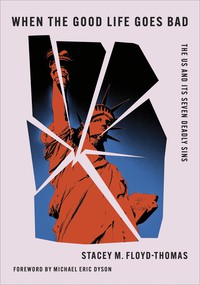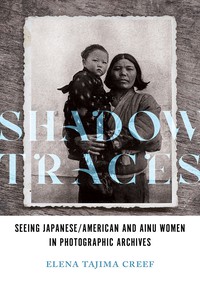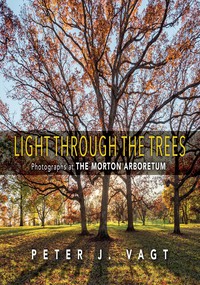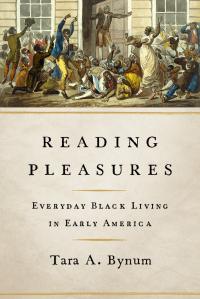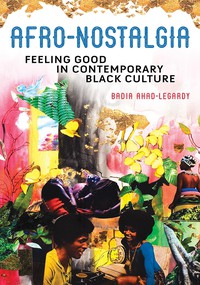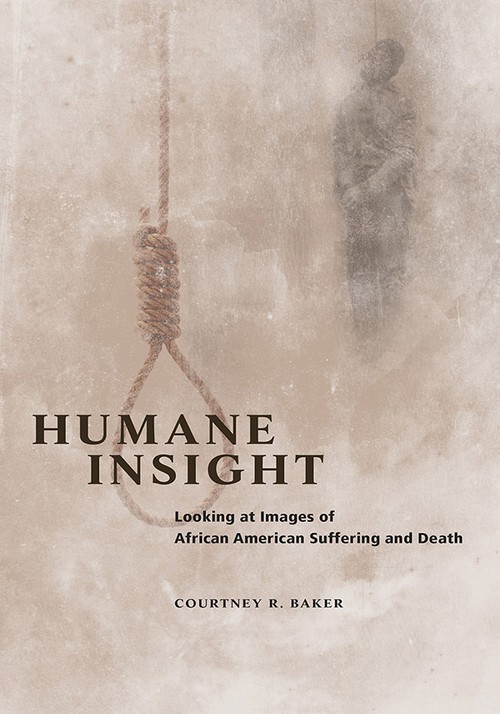
Humane Insight
Cloth: 09/14/2015
About the Book
In the history of black America, the image of the mortal, wounded, and dead black body has long been looked at by others from a safe distance. Courtney Baker questions the relationship between the spectator and victim and urges viewers to move beyond the safety of the "gaze" to cultivate a capacity for humane insight toward representations of human suffering. Utilizing the visual studies concept termed the "look," Baker interrogates how the notion of humanity was articulated and recognized in oft-referenced moments within the African American experience: the graphic brutality of the 1834 Lalaurie affair; the photographic exhibition of lynching, Without Sanctuary; Emmett Till's murder and funeral; and the devastation caused by Hurricane Katrina. Contemplating these and other episodes, Baker traces how proponents of black freedom and dignity used the visual display of violence against the black body to galvanize action against racial injustice.An innovative cultural study that connects visual theory to African American history, Humane Insight asserts the importance of ethics in our analysis of race and visual culture, and reveals how representations of pain can become the currency of black liberation from injustice.
About the Author
Courtney R. Baker is an associate professor of American studies and black studies at Occidental College.Reviews
"An innovative cultural study that connects visual theory to African American history, Humane Insight asserts the importance of ethics in our analysis of race and visual culture, and reveals how representations of pain can become the currency of black liberation from injustice. . . . An impressively well written and truly exceptional work of seminal scholarship."--Midwest Book Review"Asks us to set aside earlier theoretical interpretations pertaining to the camera and the violent, invasive, imperial gaze it affords . . . and instead to pay attention to the power of the photographs themselves and what looking at them achieves."--Civil War Book Review
"Provocative. . . . Baker's study reminds us of the delicate dance between voyeurism and witnessing, pity and righteous indignation."--African American Review
"A thoughtful narrative that seeks not only to broaden the readers' vision of their own humanity but to access a deeper understanding of how race, lack of jurisprudential process, and bigotry was used to justify these crimes against the black body."--H-Net
"Humane Insight resituates our understanding of how black activists used images of black suffering and death to challenge racism and inequalities in the United States. . . . Baker's work is to be commended for emphasizing the various ways African Americans sought to use their suffering and deaths to undermine the very structures that allowed for black victimization."--Journal of African American History
Blurbs
"With perceptive and original analysis, Baker moves us through a series of historical moments when images of black pain and death made black suffering legible to a wider public."--Amy Louise Wood, author of Lynching and Spectacle: Witnessing Racial Violence in America, 1890–1940
"This groundbreaking book is a corrective to recent arguments that have misunderstood the role of representations of black suffering and death in empowering a people. With insight and keen observation, it illuminates how proponents of black freedom and dignity employed difficult images to alter public opinion and spur change."--Maurice Berger, University of Maryland Baltimore County
"The scholarship presented by Baker is sound with expert use of various categories of criticism and philosophy, including literary criticism, psychoanalysis, and sociology. This book is a much needed contribution to African American cultural studies. Baker offers fresh insights and deft interpretations suffering and death imagery. Her discussion of the psycho-political work of Emmett Till's beaten and abused body during the Civil Rights Era, for instance, is particularly astute. I recommend this text highly."--Debra Walker King, author of African Americans and the Culture of Pain



